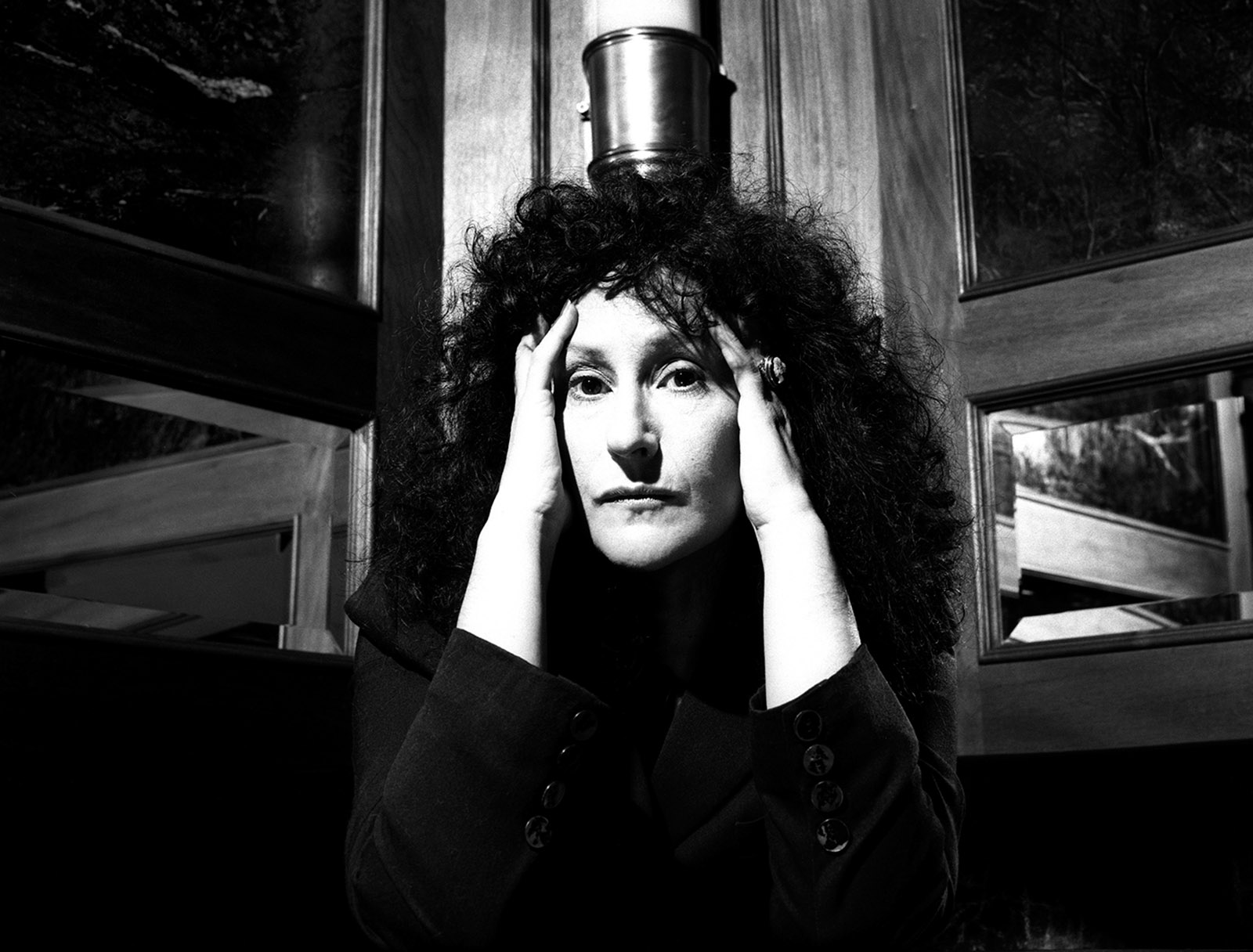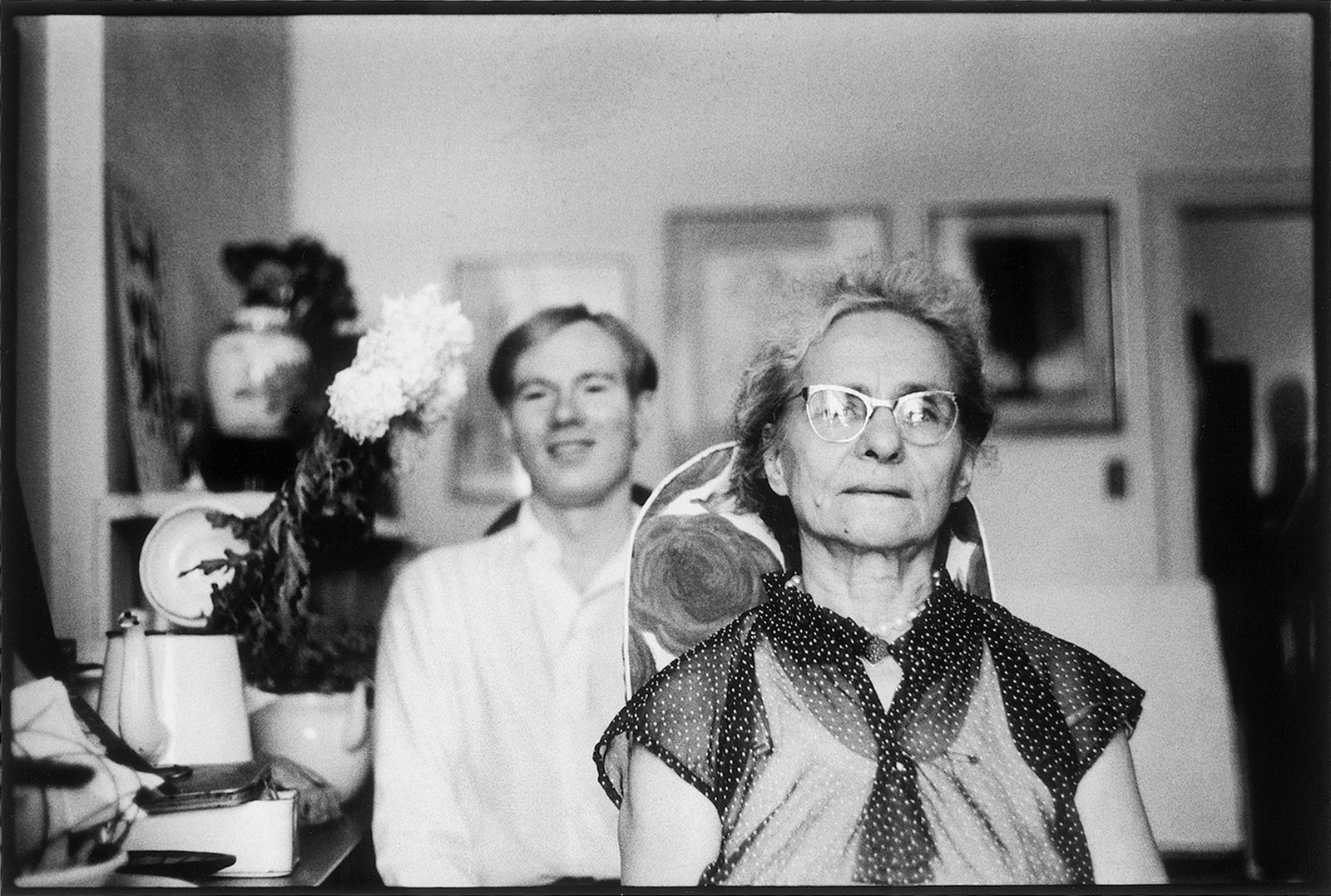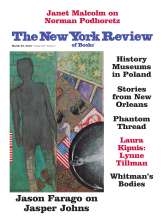Lynne Tillman is widely revered by other writers—the galley of her new novel, Men and Apparitions, boasted a page of quotes from literary luminaries branded “TILLMAN SUPERFANS” who shovel on the praise with a backhoe—though not by me. I suspect that revering writers does them no favors, but don’t worry, this isn’t the setup for a hit job.
Reading Tillman reminds me of once visiting the home of an acquaintance. Her partner was a brilliant philosopher who’d been left crippled and hunchbacked by a childhood disease. I found myself wondering whether my acquaintance managed to overlook the hunchback or was attracted to it. Either way, she seemed my moral better: far more humane, or far more perverse. The partner was a bastard, nasty to everyone, especially to my acquaintance. Was this too part of the attraction, or something she could overlook? I didn’t understand the erotics of the situation, but witnessing it felt like an indictment of my own conventionality. At one point I idly pulled a magazine down from a pile on a dusty end table—the place was in a state of squalor—and dislodged a stack of months-old unopened mail underneath. “How can people live like this?” I screamed silently inside my head, shamed by my bourgeois housekeeping standards but also really wanting to get home.
Spending time chez Tillman feels like that to me: disjunctive, fascinating, a little appalling. It calls things into question. The random digressions make me crazy, yet I want to imitate them.
When critics encounter an alien sensibility, bloodbaths often ensue. It can be fun to write a takedown, especially of someone whose writing falls outside your comfort zone, and Tillman is such a writer for me. My propensities, unfortunately, lean in the opposite direction. The alien sensibility inspires self-laceration, not self-elevation: Why can’t I write like that? Shouldn’t I write like that? The title of Tillman’s previous essay collection, What Would Lynne Tillman Do?, invites such a response: one’s differences from Tillman feel more like capitulations than aesthetic roads not taken.
I could have been Tillman. Like her, I studied painting as an undergrad, but eventually veered toward writing instead. I too came of age steeped in the legacy of the avant-garde. I suspect we have similar bookshelves: we’re interested in critical theory and questions of the self; we venerate Erving Goffman and overquote Freud. On paper we’re a perfect match, yet despite all that, Tillman is from Mars and I’m from Venus. Filter everything I say hereafter through that disclosure.
The signature move of Tillman’s last two books is genre-crossing. Both use a fictional character as a conduit for essayistic observations, critical aperçus, fake memoir (some of which may be true, though who knows), and torrents of ideas. The Complete Madame Realism and Other Stories carries the label “stories” but could equally be labeled “criticism,” albeit written (mostly) in third-person narration that hews very closely to the perceptions of a character—Madame Realism—who sometimes seems not entirely unlike Tillman, though I wouldn’t be able to say where one leaves off and the other takes up. (The Madame Realism pieces, which make up about half the book, were originally written for Art in America and other art venues in the late 1980s and 1990s.)
Continuing in the genre-bending vein, Men and Apparitions, Tillman’s first novel in twelve years, may gesture diffidently toward conventions like plot and character, but the characters are contrivances charged with the spouting of ideas and on the verge of collapsing from forced overtime and the weight of their assignment. This might make it sound like one of those sprawling postmodern updates on the “novel of ideas,” but that would be a category error—though ideas arrive by the ton, one soon becomes aware that they’re mostly inconsequential and not really the point.
The notional protagonist is Zeke, who narrates his life story from childhood on. Most of the book is Zeke’s voice, relentlessly telling us things. We rarely observe him interacting with anyone—there are few scenes and little dialogue; it’s just Zeke talking. About his childhood, about his “family”—archetypically referred to as Father, Mother, brother Hart, and Little Sister (afflicted with “selective mutism,” unlike her logorrheic sib)—with unilluminating details about the clan amassing like stacks of unread newspapers. Realist fiction builds characters out of such accrued detail, but here they remain stick-like, starved of heft or reality. Zeke becomes a cultural anthropologist and an assistant professor at an eastern university: more talking ensues. As he laboriously explains his field—“We study others and increasingly ourselves, and what customs and behaviors do for the society that enacts or supports them”—and the history of ethnography, and the arrival of cultural studies in the 1990s, the nonstop didacticism makes him almost believable as a male academic, but I wouldn’t call him engaging.
Advertisement
The great advantage of genre-crossing is that it purchases freedom. A critic-novelist-essayist-ethnographer-female impersonator gets to detach herself from all the conventions, seize the best of all worlds. She can be a pirate, a thief: ill-mannered, uncensored, unedited. The tougher question is what to do with all that freedom.
But first: on the matter of editing and its discontents. Now personally I hate editors, except maybe when they’re paying for lunch. Why do I hate them? Because once you get them in your head, you can’t rid yourself of them. One of them said to me once, regarding some riff I’d engaged in on something or another, “No one cares about that.” Ever since, when I sit down at the keyboard poised to type up a flurry, that niggling voice commences in my head: “No one cares. No one cares.” You see why I hate these people? Who died and made them auxiliary superegos? Who needs another superego?
Possibly most writers, as it turns out. Or so I found myself thinking not far into Men and Apparitions, which is supremely, magisterially unedited. Tillman has said that terms like “experimental” or “traditional” or “mainstream” or “conventional” “are not resonant” for her. Maybe “downtown” then? Not as a geographic locale, but as an aesthetics of rejection. The traditional “downtown” writer rejected narrative (or in the visual arts, representation and “literariness”); here the rejectee is editing. There’s a rule of thumb for print media (well, a rule of thumb I just invented): the more “uptown” the press or the publication, the higher the pay and number of readers, and the more violent the editing. If you wish to be published in the prestige rags, you can very well end up arguing back and forth with an editor over a single word, certainly over an extra clause, not to mention what ideas you’re permitted to express or jokes you can make. Tillman has clearly not been having these sorts of arguments. She’s chosen not to have those arguments. She ranges free as a writer, or as close as it comes. She resides “downtown.”
Now if I were Tillman, I would have appended to the phrase “ranges free” a jokey fillip such as “like a pricey chicken.” And then followed with “(kidding).” This is one of Tillman’s preferred delinquencies in Men and Apparitions: a dumb not-exactly-joke, followed by a parenthetical not-exactly-retraction. I don’t have the technology to count the number of “kidding”s in this volume, but there are lots. “Haha” also recurs, occasionally amputated to “ha.” Also “half-kidding.” But I’m not Tillman, and after it crossed my mind to append “like a pricey chicken” to “ranges free” (because the phrase “free-range chicken” strikes me as unaccountably funny) I said to myself: that’s just dumb. Perhaps I even typed and deleted it, but in any event, I self-censored, having ingrained the habit from years of torment at the hands of editor-superegos. I imagine that Tillman would not have done the same. She loves a rimshot, the feebler the better. Don’t take anything here too seriously, I think I’m being told.
So Tillman models a certain kind of liberty on the page, and liberty is nothing to sneeze at. But for reasons I can’t claim to understand, she’s employed it to make her protagonist-mouthpiece into a bore. Here are a few snippets from Zeke, whose profession makes him a fount of wisdom on humankind and culture: “A mind is not a brain. Or, a brain is to a mind what a photograph is to an image. And they can be conflated, brains and minds, images and photographs, and sometimes I do it too.” Or: “Pictures become a memory for which you have no actual memory.” Or: “All ‘portraits’ are also self-portraits.”
These are not insights that are going to set the world on fire. In fact, many of Zeke’s earnest decrees are banalities. He says assuredly that he’ll get tenure unless he pisses off the department stiffs by being “‘too clever,’” but that doesn’t seem like an imminent danger. “Have to walk the walk, then like everyone else who’s tenured do the big fade.” In asides like these you get a welcome dose of Tillman’s tartness, but mostly Zeke’s pronouncements sound the same, land softly, are quickly forgotten.
As it happens, Zeke wrote his dissertation on family photographs, so we get much on his own family genealogy: the story of a cross-dressing great-uncle, the biography of a supposed famous relative, Clover Hooper Adams, the real suicidal wife of the real Henry (who famously never mentioned her in The Education of…), which allows for much exposition about the Adamses and their circle; a mini-treatise on Clover’s pioneering photography, along with various disquisitions on the language and history of images. We get undeveloped observations on cultural events from the 1970s on, scandals—the JonBenét Ramsey murder, the Unabomber—mashed up with perfunctory reports on old television shows: Ellen coming out on Ellen, the documentary An American Family. We get a chapter of Zeke’s field notes. We get what seem like decades of someone’s journal entries (Tillman’s? Zeke’s?).
Advertisement
Zeke favors clichés and outmoded slang—“too cool for school,” “had our groove on”—recycling dead language like a postmodern novelist. The writing is baggy. Zeke is flat. Occasionally there’s some discussion about surfaces and depths that perhaps explicates where Tillman stands on these matters, but the explication is itself so flat that it doesn’t quite register. (A less tetchy reader than I—curtsey of respect to the great Fredric Jameson—might say that all this pastiche and depthlessness is the aesthetic logic of late capitalism, which shattered our identities well before the novelists got there.)
Then, suddenly, Zeke’s wife Maggie cheats on him with his handsome friend CW and—as if to prove Tony Tanner’s assertion in Adultery in the Novel that marital transgression is the lifeblood of Western literature, because breaking contracts is what the novel as a form is all about—Men and Apparitions springs to life. For twenty pages, Zeke—wounded, ranting, crazed—acquires an inner life and human depth. He feels instead of tells. In an instant he’s interesting. The writing picks up pace, sprints around, does some jumping jacks, as if to say, “See, I could do this sort of thing if I wanted to.”
Then we abruptly downshift, coasting to a stop with a mini-essay on “The Inenarrable,” regarding the vagaries of description (I think?) and namechecking Wittgenstein, Clifford Geertz, Gilbert Ryle, the chemist-philosopher Karl von Reichenbach, Edward Eggleston, and the eighteenth-century animal magnetist Franz Mesmer, in the course of three not particularly comprehensible (to me) pages. “Words insinuate. Pictures doubt,” the section concludes. Okay, but so what?
The difficulty with this stream of aleatory observations and unconnected assertions is that unpinned to stakes of any sort—a narrative, an argument—they lack texture and rhythm. They all occur at the same latitude, making them indistinguishable and forgettable. In her essay “Doing Laps Without a Pool” (2009)—which Sharon Mesmer, who interviewed Tillman for The Paris Review, quoted in an attempt to pin her down about her tactics—she writes: “I don’t want to take a position. Not taking a position is a position that acknowledges the inability to know with absolute surety…. Anything can be on the page.” In another essay, on Andy Warhol, Tillman remarks, “How do we know what to pay attention to. How do we know for ourselves what’s important. How do we choose.” Her interviewer points out that these are framed as statements, not questions.
As demonstrated in the adultery section of Men and Apparitions, Tillman is perfectly capable of writing an adept psychological novel. She can toss off polished sentences with the best of them, and many in the Madame Realism collection are. She can produce an incisive piece of literary criticism on a conventional subject like Edith Wharton, as in What Would Lynne Tillman Do?. Amid the non–Madame Realism essays in the new volume, the reader stumbles upon a singularly sharp piece of straightforward art criticism about the work of Cindy Sherman.
Madame Realism is an interesting critical innovation, and far livelier company than Zeke—better at making her observations matter—though they could also be cousins: both have cluttered minds and are prone to punning wordplay, to delivering impromptu potted histories of whatever artist or thinker comes to mind. Madame R. takes a wide-eyed view of the world, punctuated by welcome jabs at its expense. She can be a bit of a ditz, prone to audible sighs and lame asides—“Perhaps imitation is the insincerest form of flattery”—but also quite the savant. She likes pondering the fiction of identity, especially her own, and divulging mundane facts about her “self”—she doesn’t get carsick if she rides in the back seat, for instance. Good to know.
She pays visits to museums and landmarks, then mulls, and reports on overheard conversations. She’s great on a trip to Ellis Island, delivering a whirlwind of speculation about immigration, memorials, the myth of the melting pot. On the way home her African cabdriver tells her he’d never experienced racism back in Ghana and was unfamiliar with it until he moved to America; then he denigrates the Senegalese as lazy people who shun work. “That night Madame Realism dreamed of people climbing up and falling off ladders.” Lucky is the cultural critic blessed with such convenient dreams!
Perhaps what Tillman is choosing to do—or yielding to—with all the randomness and clutter feels harder to her than doing the more conventional thing: giving shape to the work, cutting down the excess, straightening the disarray. Maybe that would feel, instinctively, too “uptown.” It helps to know that Andy Warhol has long been a touchstone for Tillman: “part of the way I think,” she’s said. In fact she interviewed many of the Factory denizens for her 1995 book The Velvet Years: Warhol’s Factory, 1965–67. As a novelist, Tillman has said she shares Warhol’s interest in portraiture, but confronted with the unedited blitzkriegs of prose in these books, it’s his early films that came to mind. Warhol too abjured editing—in Blow Job (1964) and Empire (1964) he famously set up a camera and just kept shooting, later splicing the unedited rolls together into a continuous shot. The choice was to make no choices, except that that’s a pretty aggressive choice. Both films were also supposed to be projected at a slowed-down speed, making Empire over eight hours long. At its premiere, according to Jonas Mekas, who shot it, after ten minutes thirty or forty people surrounded him and threatened to break chairs on his and another staff member’s heads if they didn’t get their money back.
In Men and Apparitions, a book that feels so defiantly unedited, and keeps it up for close to four hundred pages, it can’t be exactly coincidental that Zeke’s mother, Ellen Hooper Stark, is herself an editor of manuscripts—“histories, political science, biographies and memoirs, of intellectuals.” Before Zeke was born she worked at a press in Boston. Now she freelances.
“Mother, what’s editing,” Zeke asks her. “Making writing better, checking information, correcting grammar, and being fair to the text,” she answers. “Fair,” Zeke counters skeptically, reflecting, “Mother believed she perfectly fit in the great line of judges who never made it to the bench.” She “worked herself up deciding how often to repeat the same info, and whether repeating it would be counterproductive or what.”
Mother would probably have blue-penciled that “or what.”
To transpose Men and Apparitions to the analyst’s couch, if the patient desires to overthrow maternal judges, I applaud that project, to the extent that I understand it—here, for once, I wish more had been said. Then I recall that Warhol lived with his mother for many years and his loveliest images are of her; as Tillman says, nothing can be known with surety. But say you ditch the paternal judges too, and the internal ones, and the ones dressed as book critics—all the forces standing between writers and our freedom, goddamnit, and finally make a break for it. Won’t you be constantly looking over your shoulder, like a gangster living on borrowed time, waiting for the cops to break down the door? Who could get any writing done?
Editorially speaking, Tillman is a criminal, to be sure. She’s busted out. She’s on the run. But has she broken free? Reading her, I kept thinking of Bob Dylan’s line “To live outside the law, you must be honest.” As a writer with occasional criminal aspirations of my own, overthrowing conventions doesn’t strike me as the difficult part; it’s overthrowing them without remaining shackled to a rebellion against them that’s hard. My own preference, if we’re killing off the editors and the superegos, would be to kill them with concision. Make it matter. Make it hurt. But that’s me, and Tillman is not me, lucky for her.





